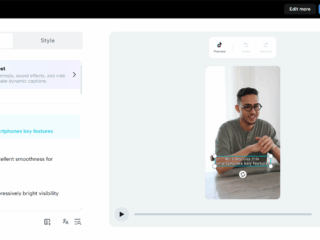
If your central heating system is more than 15 years old, it may be time to consider upgrading it. Newer systems are much more efficient than older ones and can save you money on your energy bills in the long term,
But, if you’ve had a quick look online, then you may have already become confused by the vast range of products and services available. So, how do you know what to choose? This guide will take you through the key things you need to know about upgrading your central heating to help make the process as straightforward as possible.
When Is the Right Time to Upgrade?
There are a few things to consider when deciding whether or not to upgrade your central heating:
1. The age of your current system, if it’s over 15 years old, it’s probably time for an upgrade. That’s because, over time, your boiler will become more likely to develop faults and with the warranty expired, you’re left with expensive repair bills.
2. The efficiency of your current system – newer systems are much more efficient than older ones. So if you’re using an older system, you’re likely wasting energy and money.
3. Changing needs – That big boiler and its huge hot water supply may have been the right choice when you had a houseful of teenagers, but now they’ve moved out, do you really need all that power? A smaller system could be a more efficient choice.
4. If you’ve spotted a radiator sale and decide to add more outputs to your heating system, then you need to be aware that your current boiler may struggle with this heavier demand for hot water.
Fuel Options
There are a few different types of boilers on the market, each with its own advantages and disadvantages. The type of boiler you choose will ultimately be based on your needs and preferences and the fuel available to your home.
Gas boilers
Gas boilers are the most popular type of heating system on the market, and they’re relatively inexpensive to install while being highly efficient. However, there are environmental concerns over the use of gas, and it’s slowly being phased out of UK homes.
Electric boilers
Electric boilers are becoming more popular, especially in homes where gas isn’t available. They’re 100% efficient and come with lower maintenance needs. An electric boiler’s downside is that it’s more expensive to run than gas boilers.
Oil-fired boilers
Oil-fired boilers are less common than gas or electric boilers, but they have their advantages. They’re often less expensive to install than other types of boilers and can be a good option if gas isn’t available in your home.
The problem with oil boilers is that you will need the outside space to site the oil tank, and that’s not always a viable option.
Different Types of Boilers
Now that you’ve decided on the fuel source, the next decision is for the type of boiler that will meet your needs.
Combination boilers
Also known as “combi” boilers – these are the most popular type of boilers on the market. They provide heat and hot water on demand, without needing a separate water heater. This means they are very efficient and can save space in your home.

One of the downsides to the combi boiler is that it doesn’t provide a storage tank of hot water. This means that if you have more than one bathroom that gets used at the same time, or you have the dishwasher on at the same time as having a shower, then the combi boiler may not be able to cope with the demand.
System boilers
System boilers are similar to combi boilers, but they have a few key differences. First, they don’t provide hot water on demand – instead, they heat up a tank of hot water that’s stored until it’s needed. Second, they’re not as efficient as combi boilers, so they’re not the best choice if you want to save money on your energy bills.
However, system boilers have the advantage of being able to meet the hot water needs of multiple devices at once, so they’re a good choice for larger households.
Regular boilers
Regular boilers, also known as “conventional” or “heat only” boilers, are the most common type of boilers in the UK. They provide heat to your home via a network of pipes and radiators and require a separate tank to store hot water.
Regular boilers are less efficient than combi or system boilers, so they’re not the best choice if you’re looking to save money on your energy bills. However, when you already have a regular boiler, then the cost of changing over to a combi boiler can be high, so in this case, it might be more cost-efficient to stay with a regular boiler.
Things to Consider When Buying a New Boiler
1. The type of boiler – as mentioned, there are several different types of boilers on the market. Gas, electric, and oil-fired boilers are the most common. Again, you’ll need to decide which type is best for your home based on your needs and preferences.
2. The size of the boiler – boiler size is measured in kilowatts (kW). Homeowners should choose a boiler with enough power to ensure that hot water can reach all of the radiators and bathrooms.
3. The efficiency of the boiler – you’ll want to choose a boiler that’s as efficient as possible. Newer boilers are much more efficient than older ones, and this is because they’re designed to meet new, more stringent energy efficiency regulations.
4. The cost of the boiler – boilers can be expensive, so you’ll want to make sure that you choose one that’s within your budget. Be sure to factor in the cost of installation when making your decision.
5. The warranty – most new boilers come with a warranty of at least two years, while some manufacturers offer up to twelve years of cover. Having an extended warranty can give real peace of mind.
4. The cost of the boiler – boiler prices can vary significantly. You’ll want to get a few quotes from different companies before making a final decision.
5. The warranty – all boilers come with a warranty, but the length and terms of the warranty can vary. Make sure you understand the terms of the warranty before making a purchase.
Some warranties may not cover parts or labor, so be sure to read the fine print.
Our Roundup
When it’s time to upgrade your central heating, there are several things to consider. The type of boiler, the size, the efficiency, and the cost are all important factors. With so many options on the market, it’s important to do your research and choose the boiler that’s right for you.

We recommend contacting an experienced and registered heating engineer to get expert advice on which boiler is best for your home. They’ll be able to assess your needs and recommend the best option for you.












